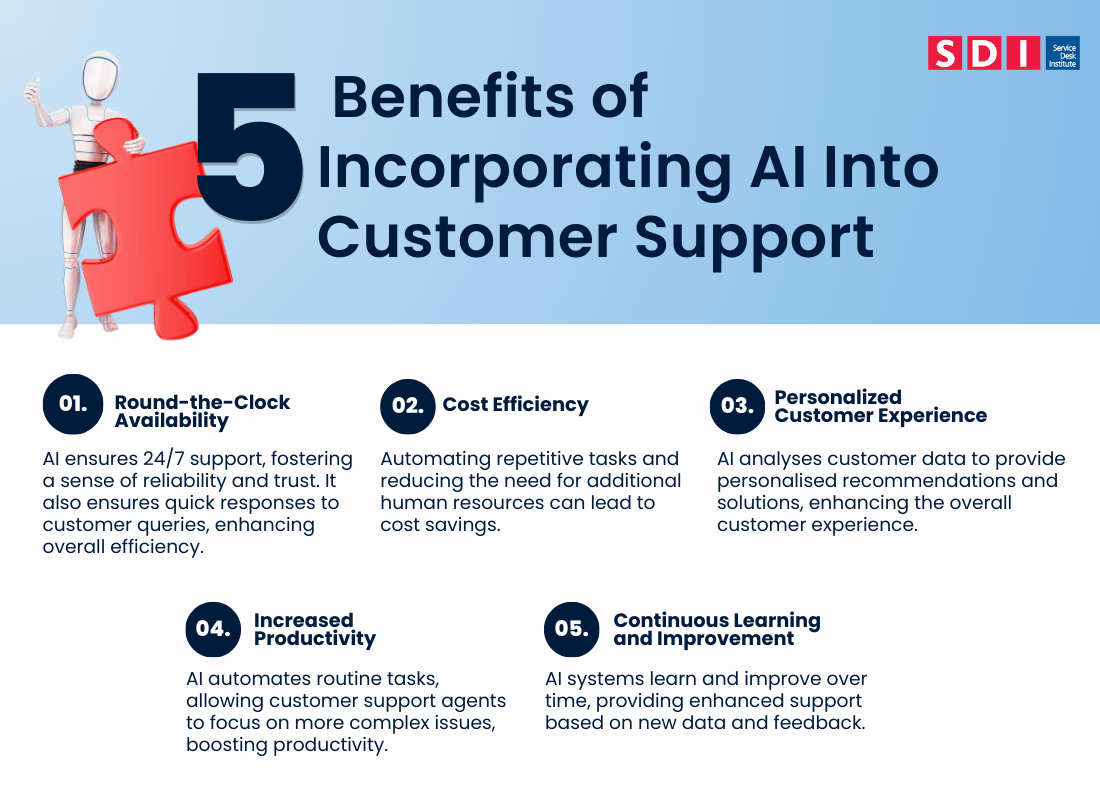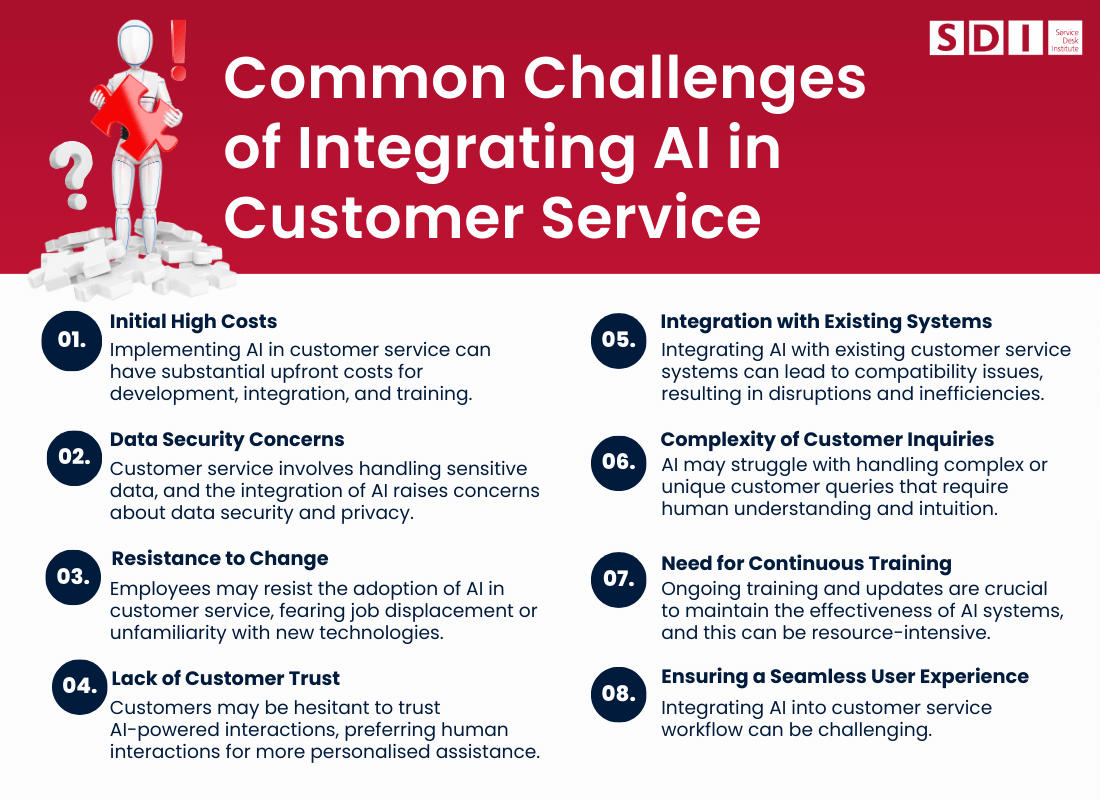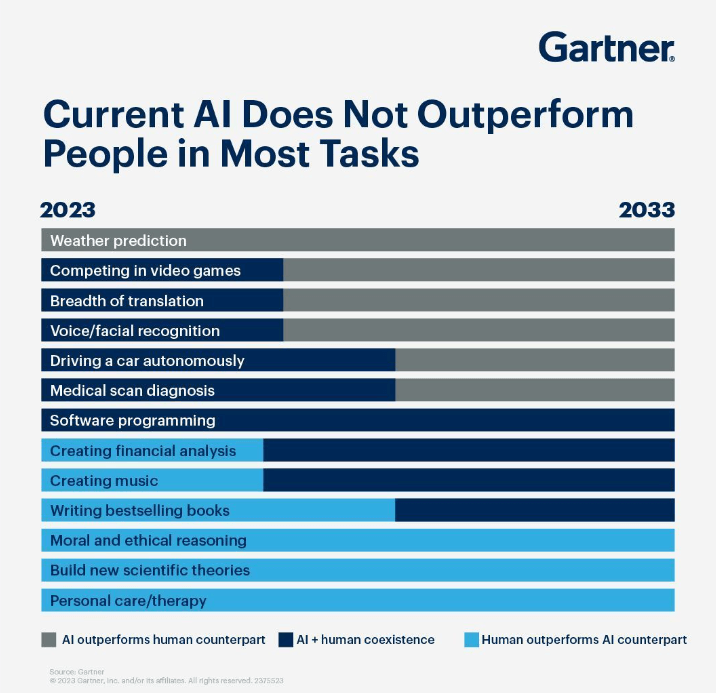 Back to Resources
Back to Resources
The increasing adaptation of Artificial Intelligence (AI) is revolutionising how organisations interact with their customers. But there’s one question lingering on everyone’s minds. Can AI truly replace human agents in customer support?
Any evolution in technology often leads to tough questions and shifts in customers’ mindsets. And research suggests people are more open to adapting AI than ever. According to a survey by Freshworks, 71% of IT professionals already use AI tools to increase productivity, with Gen Z and Millennials leading the way.
AI-powered customer support is already proving to be efficient and cost-effective. It helps organisations gain valuable insights and enhance the customer experience.
In fact, it is estimated that AI can increase company productivity by up to 40% by 2035.
In this blog, we will explore the current state of customer support and delve into the potential of AI-powered customer support. We’ll explore the potential benefits and navigate through the most common challenges.
Understanding the state of customer service today
Many companies today face various challenges when it comes to delivering excellent service. One of the biggest challenges is managing team resources effectively. Some organisations need help hiring quality service agents and scaling the team with the right people. At the same time, others need help with keeping documentation updated and providing consistent knowledge and expertise.
On the other hand, there are challenges with managing wait times, meeting SLAs and navigating a range of customer interactions.
Customers expect fast, personalised responses and consistent experiences. However, delivering excellent service quickly and consistently is a crucial yet very challenging task.
This means that today, agents have to be able to juggle multiple questions at once while managing stress, avoiding burnout – and delivering great customer experiences.
As an answer, many organisations have turned to automating customer service. This has made the rise of AI-driven solutions, such as generative AI, even more attractive due to its potential to enhance customer experience.
Benefits of AI in Customer Service

While AI’s growth in customer service is undeniable, the question remains: Will AI replace human customer support agents? The short answer is – no. The goal of using AI in customer service today is to complement, not replace, human interaction.
When implemented correctly, AI solutions such as virtual assistants, chatbots or automated sentiment analysis can help agents optimise their workload and automate repetitive and mundane tasks. AI can enhance the customer experience and address some industry challenges, such as employee burnout and inefficiency.
With AI as their ally, customer service agents can be more productive and focus on more complex queries that will increase customer satisfaction.
Common Challenges of AI in Customer Service

However, the integration of AI in customer service isn’t without its challenges. One is the challenge of understanding emotions and context, leading to potential misinterpretations.
To address this, a combination of machine learning and natural language processing should continually refine the model based on user interactions and feedback.
Another barrier is the perceived lack of human touch. This can be mitigated by seamlessly blending AI and human support, allowing AI to handle initial queries and human agents to address complex or sensitive issues. Inaccurate responses are an inevitable challenge, addressed through regular reviews, training, and a feedback loop for continual improvement.
Additionally, there are some integration challenges, such as technical disruptions, choosing the right AI tool, configuring it for your company’s needs and setting guidelines. This can be resolved by selecting customer service software that seamlessly integrates AI and is compatible with the organisation’s existing environment.
Lastly, managing expectations is crucial to avoid unrealistic perceptions of AI. It requires clear communication about its capabilities and limits, along with analytics for monitoring and continuous improvement.
READ MORE:
Predictions for AI’s Impact on customer service jobs
According to Gartner, current AI does not outperform humans, so the AI job apocalypse is exaggerated. However, due to the rapid advancements in the field of AI, it seems unlikely that we will not see significant changes within the next 5 to 10 years.
The impact of AI, particularly generative AI, on ITSM jobs is expected to grow.
According to an HFS Research report, customer services, sales, and marketing are among the first departments to be impacted by generative AI, with enterprises already applying this technology to drive better and faster access to insights.
Additionally, automation and AI are expected to help enterprises do more with the same level of resources. In fact, AI has been shown to save resources significantly. For instance, Genpact implemented generative AI in customer service, achieving a 40% savings in resources.
This means that ITSM roles may evolve to work alongside these technologies rather than being outright replaced. So yes, integrating AI into ITSM and customer service is poised to unlock new efficiencies and capabilities.
But remember, this also implies that customer service roles may evolve, requiring new skills and adaptability as AI technologies become more integrated into the service delivery process.

In conclusion
The growth of AI in customer service clearly indicates how technology is transforming how businesses operate. And AI will likely continue to play an important role in improving customer satisfaction and loyalty in the coming years.
Although some challenges exist, the key is to embrace the synergy between AI and human-driven customer support, as that will help add value and empathy to the customer experience.
























